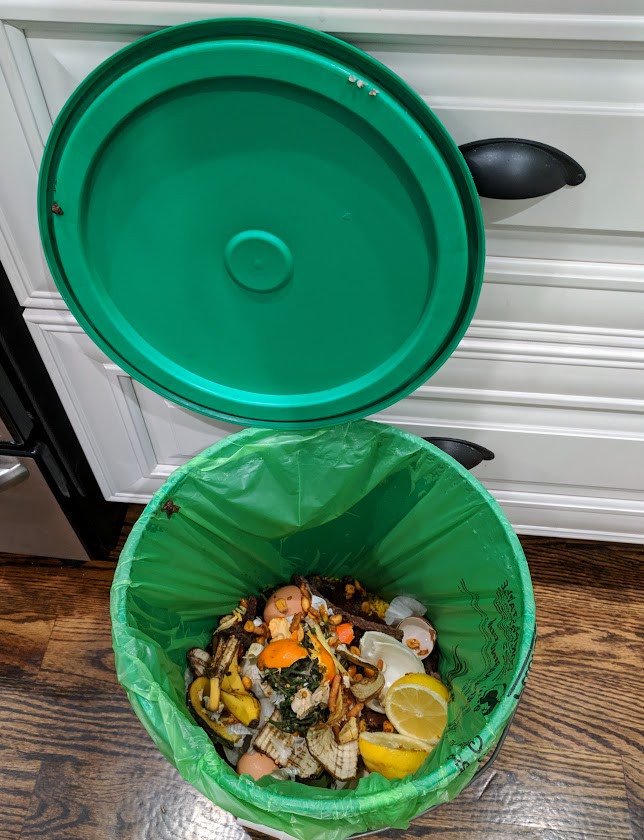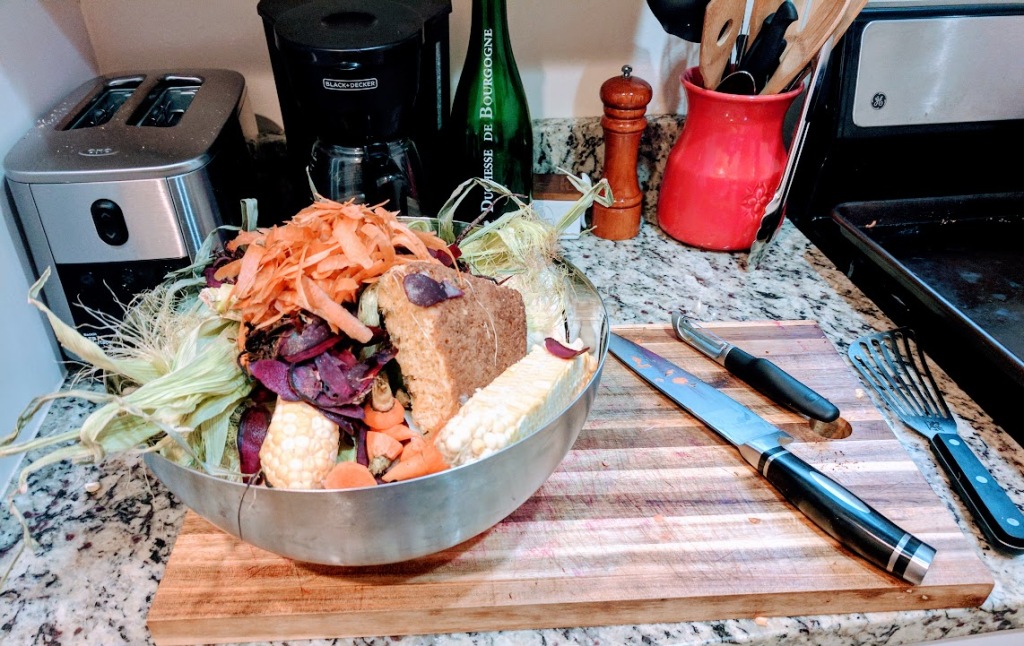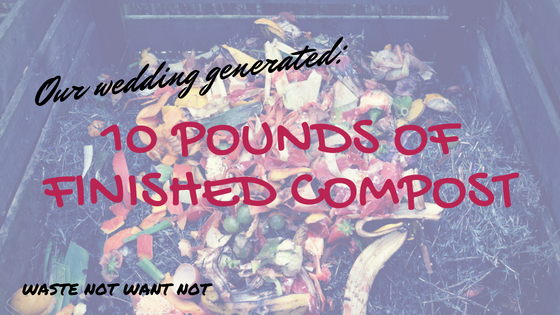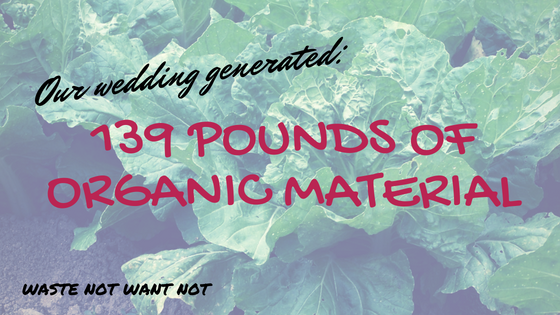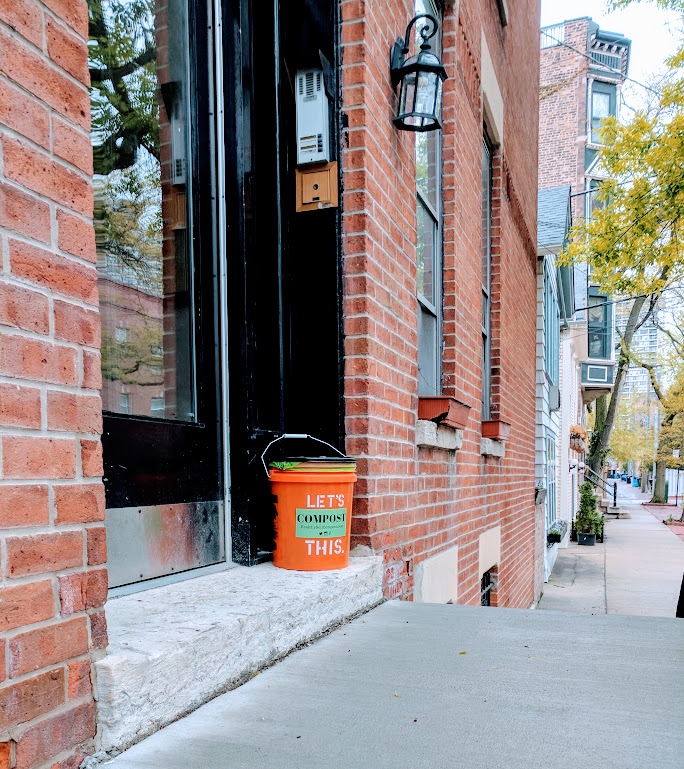It’s hard to believe we have been using a composting service in the city for almost 5 years now. And I have a lot of content on it!
- My Journey
- Wedding
- Generic
- Work
I have been using Healthy Soil Compost since 2016 at home and even had them compost at my wedding in 2018.
For those of you who are interested in starting a compost journey, I wanted to pull together a little guide on all the options for composting services in Chicago I am familiar with. Each provides you with a 5-gallon bucket for you to fill up that can be picked up at different intervals (besides Block Bins, see below).
Healthy Soil Compost
- Services:
- Commercial
- Residential
- Events & Seasonal (yard waste, pumpkins, Christmas trees)
- Service Area:
- Most Chicago neighborhoods from North Lakeview to Logan Square/Hermosa. West to Garfield Park, East to the lake, and South to Hyde Park/Woodlawn.
- Beverly and Mt. Greenwood
- Residential Pricing:
- Monthly: $20 (When I signed up, it was $15 a month and I still get charged that rate!)
- Bi-Monthly: $30
- Weekly: $40
- Extra Benefits:
- Finished compost
- Restaurants that Compost:
- Farmers Market Compost Collection:
The Urban Canopy
I have had experience with Urban Canopy composting at some events for a non-profit board I used to serve on. They also have a CSA, which is awesome!
- Services:
- Residential
- Commercial
- Events
- Service Area:
- Residential Pricing:
- Monthly: $15
- Bi-Weekly: $25
- Weekly: $35
- Extra Benefits:
- Finished compost
- $5 voucher to a local farmers market or a $5 voucher to one of the restaurants that also compost with Urban Canopy
- Where Does it Go?
- Their farm in Englewood and local compost-processing facility
- Farmers Markets
WasteNot Compost
Chicago’s first and only zero-emission compost collection service.
- Services
- Residential
- Multi-Unit
- Commercial
- Service Area
- Residential Pricing
- Weekly: $10 per service ($40)
- Bi-Weekly: $12 per service ($24)
Collective Resource
- Services
- Residential and communal
- Commercial
- Events
- Service Area
- Chicago neighborhoods and suburbs
- Check here
- Residential Pricing
- Weekly: $10.50 per week ($42)
- Bi-weekly: $15.50 per week ($31)
- Monthly: $20.50
- Restaurants that Compost:
- Dos Toros Taqueria – Wacker
- Food Court at Ogilvie Transportation Center
- Hoosier Mama Pie Company
- Philz Coffee
- See a full list of organizations that compost with Collective Resource here
Block Bins
- Services:
- Neighborhood composting (set up a bit differently than the others, Block Bins allows you to compost with your neighbors using a large 35-gallon, locked bin placed in the alley)
- Service Area:
- Chicago
- Check here
- Residential Pricing:
- $10/month: 5 gallons of waste per month (~1-2 person household)
- $15/month: 10-15 gallons per month (~3-4 person household)
- $20/month: 15-20 gallons per month (~5-6 person household)
- Where Does it Go?
- An industrial composting facility in Harborview
